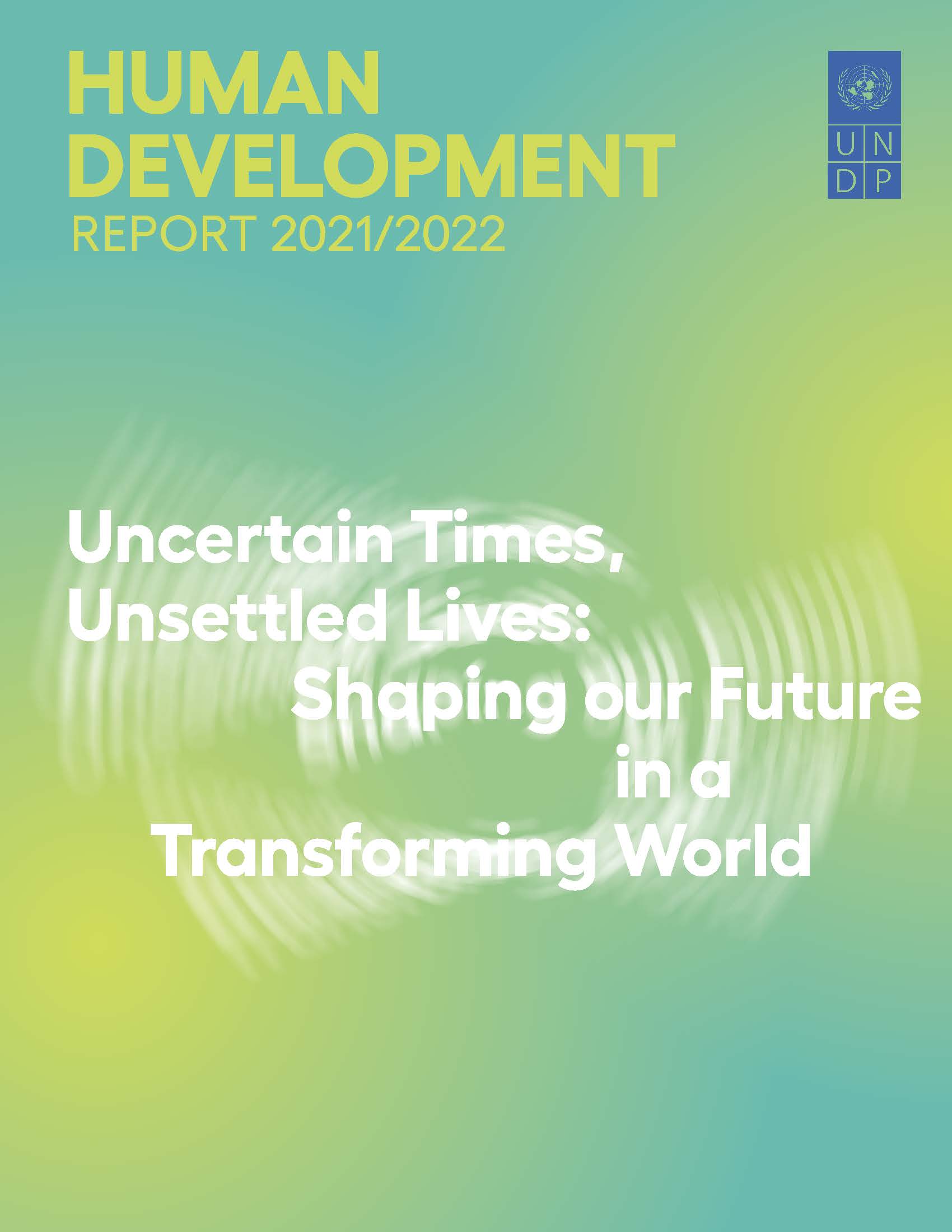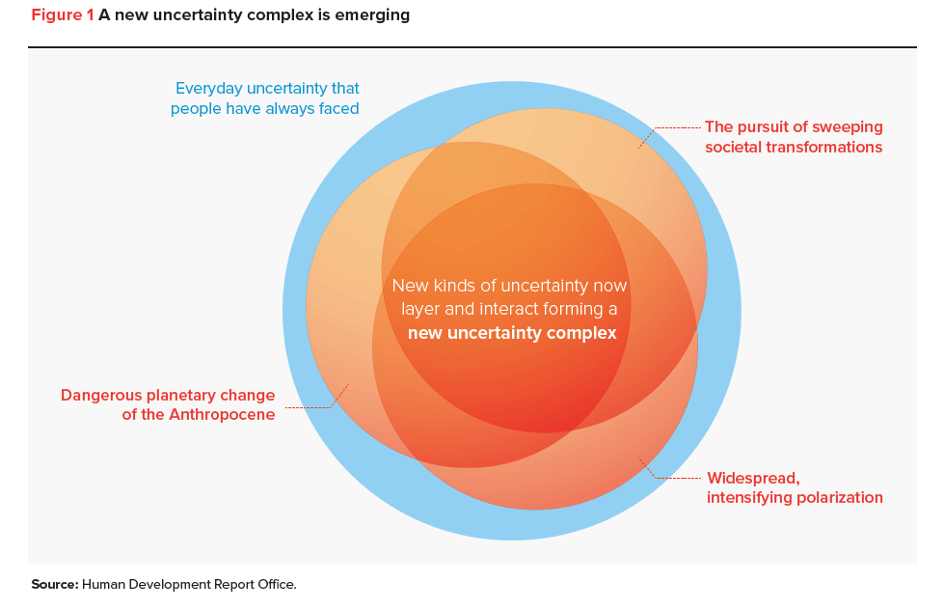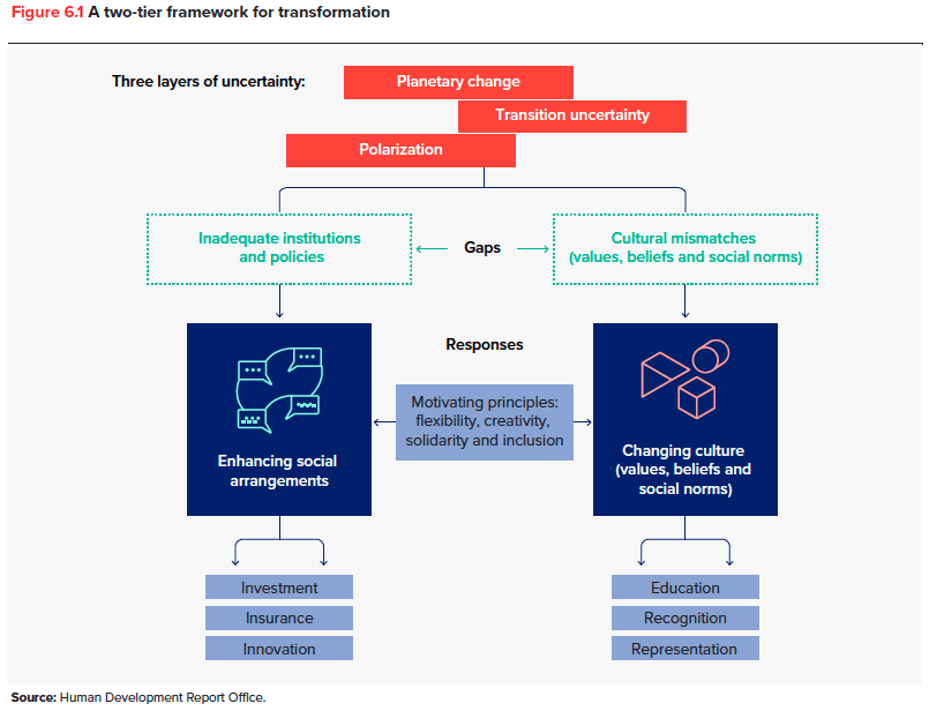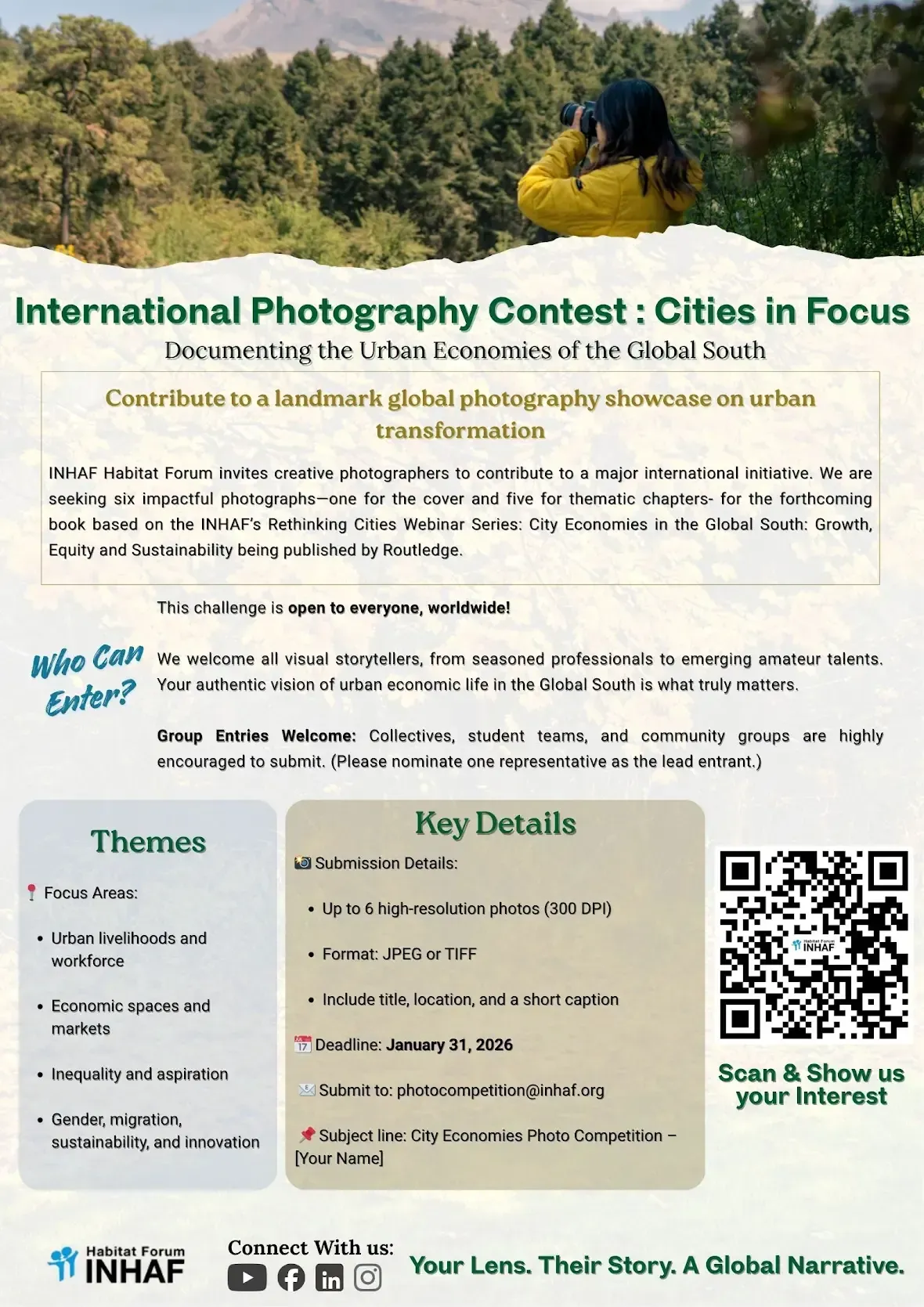Navigating uncertainty to expand human development

A new uncertainty complex is emerging
As to be expected, the new 2021-2022 Human Development Report (HDR) of the United Nations (UNDP) provides bad and challenging news including the warning that multiple crises halt progress as 9 out of 10 countries fall backwards in human development. But that is mainly in Part I 'Uncertain Times, unsettled lives'. More enlightening and forward looking is Part II 'Shaping our future in a transforming world'
Who thinks the HDR is more a statistical handbook to argue for increases in development assistance is wrong. The HDR is and was always based on a broad socio-economic and political analysis of the situation in the world. Surprising is that the authors of the new HDR look far beyond usual indicators and identify a new 'uncertainty complex' in the world. This complex points to these three new kinds of uncertainty which interact and form the new uncertainty complex (see figure below):
- Dangerous planetary change of the Anthropocene
- The pursuit of sweeping societal transformations
- Widespread, intensifying polarization

A very important change is that the Report at least in parts is leaving the traditional distinction between developed and developing countries. Instead it states that in a sense all countries are developing countries, charting a new planetary course together, regardless of whether they work together to do so. And indeed, even developed economies are not prepared for current crises and have to search and test what works and what doesn't - often using the approach of trial and error.
"The question is no longer simply how some countries get from point A to point B; instead, it is how all countries start moving from wherever they are to points N, T or W—or letters in some new alphabet—and then course correct along the way. Development is perhaps better seen as a process characterized both by adapting to an unfolding unknown reality and by purposefully transforming economies and societies to ease planetary pressures and advance inclusion." (HDR 2021/22, page 27)
Indirectly, this questions the dominance which is often given to economic development indicators like the GDP. Instead, the attention turns to the readiness of humans to grow up to the challenges related to the new complex. While money remains important for human development the Report makes clear what's at the centre:
"The hero and villain in today's uncertainty story os one and the same: human choices." (HDR 2021/22, p. 176)
As stated by Achim Steiner, Executive Director of UNDP stated in the foreword of the Report
"... invites us to take a hard look at ossified and oversimplified assumptions about human decision-making. Institutions assume away people’s messiness—our emotions, our biases, our sense of belonging—at our peril. As with its predecessors, the Report also challenges conventional notions of “progress,” where self-defeating tradeoffs are being made. Gains in some areas, as in years of schooling or life expectancy, do not compensate for losses in others, as in people’s sense of control over their lives. Nor can we enjoy material wealth at the expense of planetary health." (HDR 2021/22, p iii)
Shaping our future in a transforming world
After the analysis of the first part of Part II of the report is titled 'Shaping our future in a transforming world'. It is forward-looking and asks
What's standing in the way of our acting together?
- Uncertain times, divided societies
- Polarization harms public deliberation
- Breaking the bold of uncertainty on collective action
How can we advance human development in uncertain times?
- Technological innovation opens new opportunities
- The COVID-19 pandemic as a window into a new reality
Based on the discussion of these questions and based on the three layers of uncertainty chapter 6 of the Report outlines a two-tier framework to embrace uncertainty.
The first tier is about what to do, with a focus on concrete transformations on three fronts: investment, insurance and innovation.
- Investment, in the capabilities people will need to enable socioeconomic and planetary conditions for human flourishing.
- Insurance, to protect people from the unavoidable contingencies of uncertain times, safeguarding their capabilities, including their fundamental freedoms (enhancing human security).
- Innovation, to foster capabilities that might not exist today.
The second tier is about how to generate the broader social and contextual conditions for change to take hold, acknowledging the role of culture as described in chapter 3 of HDR.
- Education, to strengthen agency and encourage people to shape their own future.
- Recognition, to acknowledge human rights and respect for people’s identities and values to change scripts and narratives that build hope in society.
- Representation, to amplify the power and voice that strengthen representation and agency.

The recognition of the uncertainty complex shifts the focus from financial aspects like Official Development Assistance ODA and the role of development agencies to human choices and the need of everybody to adapt to the uncertainty and to work with others at all levels on the search for solutions - while the uncertainty persists and even develops. As social scientist and governance experts I support this shift to participative governance and the requirement for capacity building by each one. Well, but it is also humbling what a big challenge we are facing: Embracing uncertainty and transforming the world we live in at the same time. It is a bit as if you're on a boat in rough waters on open see and have to invent and build for your own survival a new kind of boat without a dry dock in a safe harbour. What makes it worse is that the Report doesn't say that governments or the UN will solve the problems but that it primarily needs each and everybody to join forces. So, this Report is addressed not only to governments but to all of us.
At this point the Report starts discussing how people can be made more secure and what are important accompanying cultural changes related to education, recognition and representation (see figures below).
As part of this the chapter also includes these inspiring spotlights:
- Principles like flexibility, creativity, solidarity and inclusion to be cultivated to navigate uncertainty (page 192)
- How local communities confront rapid environmental change (p. 194)
- How volunteerism, inclusion and deliberation can work as insurance (p. 195)
- Addressing mental distress: Capabilities for people and policymakers (p. 196)
- Social media misinformation and freedom of expression (p. 198)
- Collective action and social movements shaping culture and coping with uncertainty (p. 200)
- Feminist mobilizations defying gender social norms (p. 204)
The 2021/2022 may not be an easy read because of the new perspectives formulated but it is worth reading. It is full of food for thought and advice on embracing uncertainty and transformation at the same time. Let's hope that it inspires needed action and further research all around the world.


Policies and Governance for Resilient and Sustainable Cities and Regions









